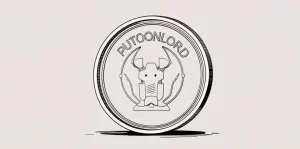Introduction
If you’ve ever scrolled through forums, memes, or gaming chats and stumbled on the word pootenlord, you’re not alone in wondering what it means. It has a curious ring to it—a mix of power, playfulness, and enigma. Over time, pootenlord has grown beyond a simple username into a cultural token within niche corners of the internet. In this article, we’ll trace where pootenlord might have come from, how it’s used, what it symbolizes, and why it resonates in digital culture. Whether you’re a meme aficionado, gamer, or someone just curious about modern internet language, stick around—the story of pootenlord is more interesting than it might first appear.
The Origins and Etymology of pootenlord

When trying to understand pootenlord, it’s helpful to start with its possible roots. Unlike traditional words that can be traced through history, pootenlord seems to originate in the wild frontier of internet naming, where creativity outweighs linguistic rules. According to several online write-ups, the “lord” suffix hints at nobility or authority, while “pooten” is more mysterious—some speculate it’s a playful mash-up or invented sound.
Usernames and handles often evolve through small communities. It’s plausible that someone coined “pootenlord” as a distinctive screen name in games or forums, and others picked it up. Over time, as it circulated, the name took on life beyond a single user—becoming a meme, a symbol, and a cultural reference.
Linguistically, what’s fascinating is that pootenlord has no fixed dictionary meaning. That very ambiguity gives it flexibility. Some treat it as a fantasy title, others as satire, and still others adopt it for its humorous or absurd quality. That flexibility is part of what gives pootenlord its staying power in meme culture.
In short: the origins of pootenlord are murky, as are many internet-born words—but its combination of familiar and strange makes it memorable, allowing communities to infuse it with new meaning over time.
How pootenlord Functions in Internet & Meme Culture
Once a term like pootenlord enters the online ecosystem, its life depends heavily on how communities adopt and remix it. Among meme pages, gaming forums, and social media, pootenlord often becomes shorthand for playful exaggeration, satire, or ironic identity.
In memes, pootenlord is sometimes depicted as a “ruler of chaos,” a parody of power, or simply an absurd presence in random situations. That’s typical meme strategy: take a weird name and put it in bizarre contexts, letting the humor arise from the contrast.
Gamers and content creators may adopt it as a username, avatar, or persona. Because the name doesn’t come loaded with preconceptions, it allows the user to project whatever vibe they want—serious, comedic, ironic, or mixing all three. In creative communities (e.g. digital art, role play, online writing), pootenlord can be a canvas—someone’s version of a playful “character name.”
One reason pootenlord spreads is its memetic adaptability. It doesn’t demand a fixed backstory; people can remix it, write fan lore, make jokes, or drop it into unpredictable content. That low barrier encourages reuse, which is a key ingredient of internet virality.
Thus, in internet culture, pootenlord is more than a name—it’s a flexible symbol, a humor vector, and a canvas for community creativity.
Symbolism & Interpretation: What Does pootenlord Mean?

Because pootenlord lacks a single, canonical meaning, it thrives partly on what people choose to make it mean. Let’s explore common interpretations and symbolic layers.
One prevalent reading casts pootenlord as a figure of mock authority—someone who is “lordly” but in a humorous or absurd way. The “lord” part evokes power, rulership, mastery, or command; pairing it with “pooten” (which has no inherent meaning) puts a playful spin on that authority.
In fantasy or role-play settings, pootenlord may be envisioned as a quirky sovereign, a mythical ruler, or a symbolic character in digital lore. Some communities build fan fiction or image memes around that silhouette.
Another lens sees pootenlord as satire—especially satire of political ego or grandiose leadership. Because it sounds like “Putin + lord” to some ears, people sometimes connect it to parodic takes on real-world power figures (intentionally or not). That political echo lets it operate as a vehicle for comedic critique.
At a deeper level, pootenlord taps into the psychology of novelty. Humans are attracted to odd, ambiguous words that trigger curiosity. That intrigue itself becomes part of the meaning: you use or share “pootenlord” because it stands out from the ordinary.
In short, pootenlord’s meaning is plural. It can evoke humor and parody, fantasy identity, or simply be a memorable digital alias. The lack of a rigid meaning is a strength: everyone can bend it to their own creative purpose.
Why pootenlord Resonates — The Psychology and Appeal

What makes pootenlord linger in people’s minds, rather than fading like so many fleeting internet fads? The answer lies in a mix of psychology, community dynamics, and viral mechanics.
First, the novelty effect. Unusual words or names jump out—our brains flag them as interesting. Pootenlord is neither obvious nor completely incomprehensible, so it strikes a balance that draws attention without being too alien.
Second, humor via incongruity. Pairing a whimsical sound like “pooten” with a serious title like “lord” creates a dissonance that’s comedic. It’s like giving someone grandiose status in a joke. That kind of playful mismatch encourages sharing.
Third, identity and individuation. Online, many people want a name that’s distinct. You don’t want to be “Gamer123” when someone else already is. Adopting a quirky name like pootenlord allows you to stand out and stake a tiny claim of uniqueness.
Fourth, community bonding. Using pootenlord (or referencing it) becomes an inside language of certain groups. If you recognize it, you’re “in the know.” That sense of shared culture helps it spread within subcommunities.
Finally, memetic resilience. Because pootenlord isn’t tightly tied to a single context, it’s easy to re-situate. It can appear in memes, gaming, text posts, art, or jokes. That adaptability means it doesn’t “expire” quickly.
Together, these forces make pootenlord stick—not just as a weird name, but as a small piece of digital folklore.
Conclusion
The curious term pootenlord may not have a fixed dictionary definition, but that ambiguity is precisely what gives it power. Over time, it’s evolved from a possible username or meme seed into a flexible symbol in digital culture—a name you see in memes, hear in gaming chats, or adopt for playful identity. Its combination of mock authority, humor, and memorability has made it both a meme and a mini-legend within niche online spaces. If you ever encounter pootenlord again, you’ll see more than a weird name—you’ll see a small digital emblem of creativity, community, and the joy of remixing language.
Frequently Asked Questions (FAQs)
What exactly is pootenlord?
Pootenlord is a coined, internet-age term with no fixed meaning. It often appears as a username, meme, or playful symbol of mock authority in online communities.
Where did the name originate?
Its precise origin is unknown. It likely sprang up in gaming or forum spaces as a creative handle and then spread organically. Several analyses suggest the “lord” part hints at rulership, while “pooten” is imaginative or invented.
Is pootenlord connected to politics or real people?
Sometimes users draw playful parallels to political names (like “Putin”), but there’s no confirmed real-world linkage. Pootenlord is best treated as a meme or creative identity, not a real person or formal title.
Can I use pootenlord for my username or brand?
Yes! Its ambiguity allows you to project your own style onto it. Many meme creators, gamers, and artists adopt it for that reason. Just be aware it carries meme baggage and might be interpreted humorously.
Why has pootenlord stuck around while many memes fade?
Because it’s flexible, memorable, and community-friendly. It’s easy to remix and reuse, doesn’t demand a rigid backstory, and fosters insider culture—qualities that help it endure in digital folklore.